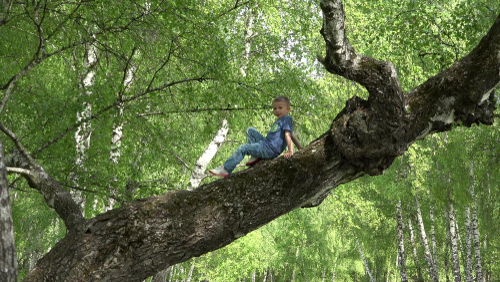To paraphrase Rocky Balboa, life is largely about getting knocked down and then getting back up again. The parental take-home: you want to raise your kids to be resilient.
In order to get there, you need to foster their sense of independence. That’s the verdict of Anxious Kids: How children can turn their anxiety into resilience, a new book by parenting educators Michael Grose and Dr Jodi Richardson.
“The notion of independence really means kids being able to do things for themselves,” Grose says to TFH. “The job of parents is to make yourselves redundant.”
Here are three ways to start relegating yourself to the dole queue of dad-life.
1. Encourage DIY Skills
“I always say never regularly do for a child the things that the child could do for him or herself,” Grose says.
Whether it’s getting dressed, fixing their breakfast or tying their own shoelaces, if a child is taking care of those things single-handedly, they’re also making themselves less dependent on adult help.
In the process, they’re developing greater mastery over their environment, Grose says. That will help to build up their confidence that they’re capable of looking after themselves. Next stop: Everest.

2. Expand Their Horizons
Children used to have more freedom to roam around unsupervised.
“That enabled kids to have little adventures,” Grose says. “They’d have to ask themselves: Should I go there? Should I climb that tree? And that’s really good for the kids’ resilience. It helps them to face their fears in many ways.”
Modern life often conspires to deny kids those opportunities. The upshot: they’re often shielded from the chance to step out of their comfort zones and resolve their problems without a helping hand.
Obviously, safety must always come first. Neighbourhoods are less child-friendly than a generation ago, we’re now more dependent on our cars and, in Queensland, it’s actually illegal to leave a child alone if they’re under the age of 12.
But Grose still recommends “giving kids little opportunities to start to move away from you and to do things on their own”.
Whether it’s simply letting them build cubby houses or just play a little further afield, gradual exposure to lengthening boundaries will encourage kids to work things out for themselves. They’ll be finding the political solution to Brexit in no time.
3. Mix Things Up
Small kids like routines – they make them feel safe and secure. And that’s a good thing. Unless such habits become so engrained that the slightest deviation gets a child flustered or panicky.
Grose suggests creating opportunities for kids to learn that they can cope with unpredictability. This could be as minimal as changing dinner time by an hour or taking a different route home from school. But subtle variations can help kids to become more flexible and less fearful of change.
“The basic issue around anxiousness is: ‘I don’t think I’m in control’,” says Grose. “So kids try and do as much as they can to control situations.”
In short, subjecting your kids to more free-form scenarios is good training to help them adapt to the ensuing shit-storm that life will eventually become.
Anxious Kids: How children can turn their anxiety into resilience by Michael Grose and Dr Jodi Richardson is out now
